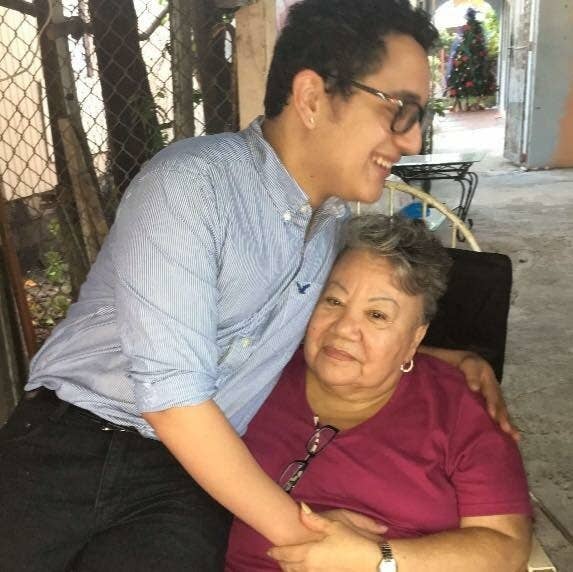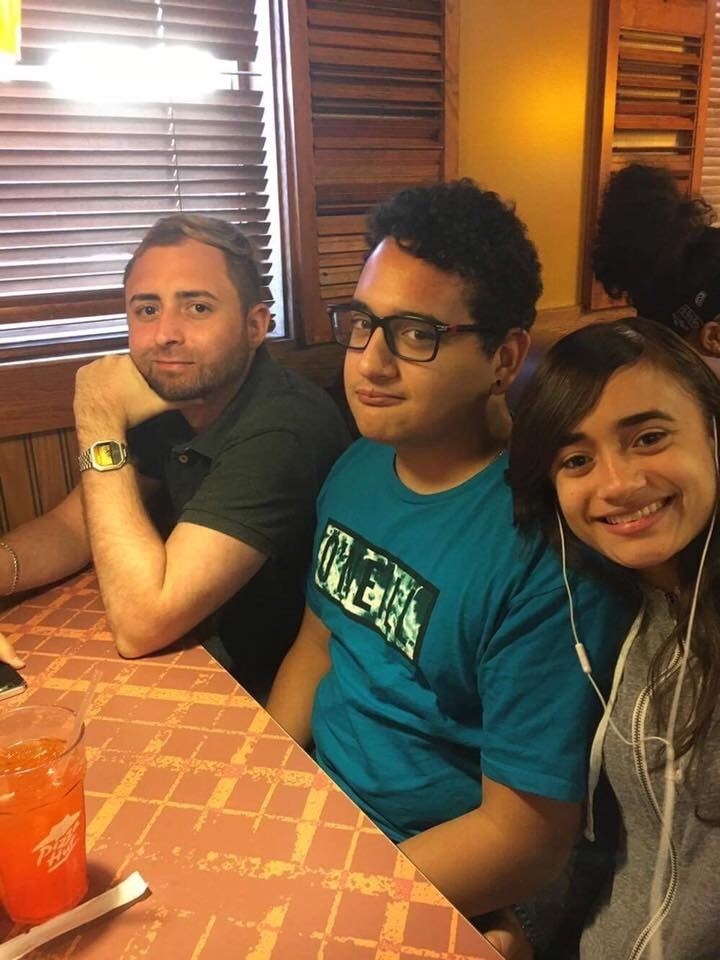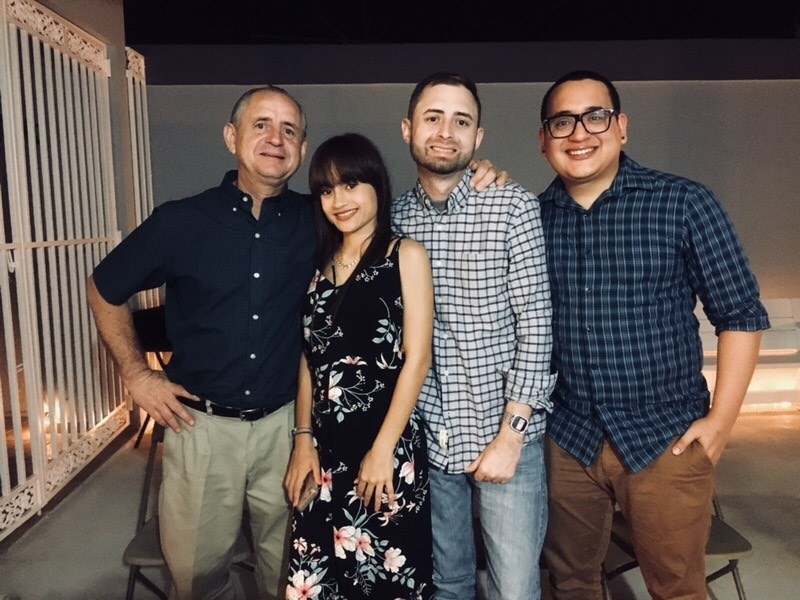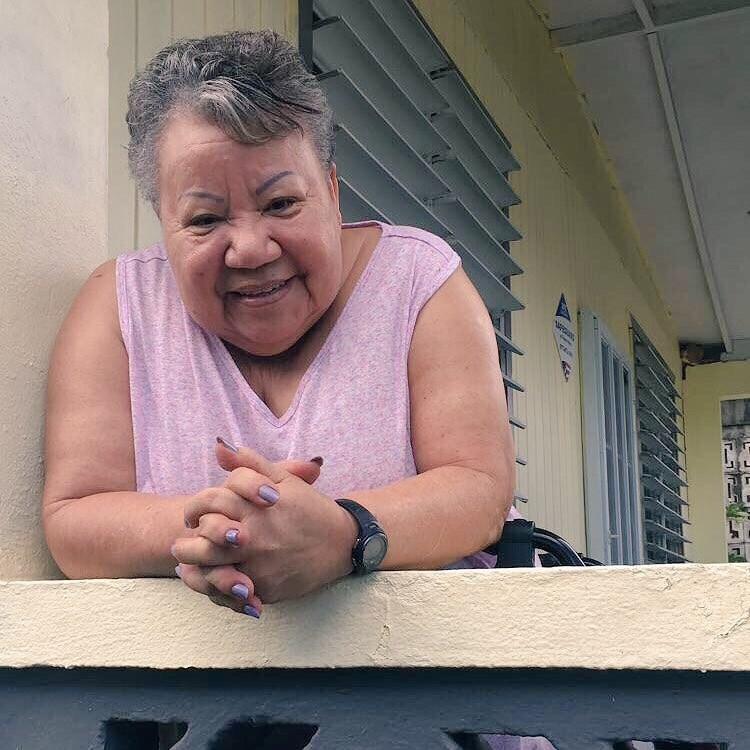
Carlos Rodriguez Rosa last heard from his grandmother, Mama Catín, the night before Hurricane Maria swept through Puerto Rico.
"She left me a voice message and she said, 'Carlos, the sky is purple and I’m scared. But my heart is content and I love you and I’ll see you soon.' And that’s the last thing she ever said to me," he told BuzzFeed News.
Five days later, she died of a heart attack in her sleep, right after she returned to her house to find it severely damaged.
"She told my aunt, 'I really don’t have anywhere else to go. What’s going to happen with me now?' And the story is that she let herself go. That she really lost hope," Rodriguez, a 21-year-old senior at Grand View University in Iowa, said. "That house was everything to her. She lived there for 35 years."
Seven months later, Rodriguez's 31-year-old brother, Iaan Carlos Rodriguez Lopez, who lived in Ponce, killed himself two weeks after being diagnosed with cancer. Rodriguez believes the prospect of dealing with the diagnosis in Puerto Rico's struggling economy was overwhelming for his brother.

"My dad doesn’t really believe this was caused by the hurricane but I believe it was caused by the aftermath because medical care in Puerto Rico is hard, there’s a lot of work to be done now. Doctors are leaving," he said.
"My dad was the one who found him. He called me, but I was working, and where I work I don't have cell reception. He was just sobbing into the voicemail thing, 'What do I do?'" Rodriguez said. "It was just so unexpected because he was a semester away from finishing his [doctorate] in clinical psychology [at Ponce Health Sciences University]. He was a good man."
He said the family didn't know about Iaan's cancer diagnosis until afterward, when they found his test results laid out on his bed.

The number of suicides and people calling suicide helplines in Puerto Rico increased following the hurricane. According to Puerto Rico Health Department data, 253 people killed themselves in 2017 compared to 196 in 2016.
And a government suicide helpline received 973 calls in November 2017 from people who made suicide attempts, compared to 297 calls in November 2016. And the helpline received 2,996 calls from people with suicidal ideas in November 2017, compared to 1,936 in November the previous year.
Mama Catín and Iaan weren't included in the 64 people counted by the government as hurricane-related deaths. On that list are others who killed themselves and died of heart failure in the days and months after the hurricane.
BuzzFeed News and other outlets reported for months that many people who died as a result of the hurricane weren't included in the official death toll, and the government initially defended its count. Then, last week, a Harvard study estimated that the real death toll could be in the thousands.
Rodriguez said seeing that report was both painful and cathartic.
"I don’t want to say it was validating, but it was like, yeah this happened, it was a real thing, and for me, it was kind of like opening up an old wound," said Rodriguez. "I was like, wow, Mama is in that number. Iaan is in that number. I just started shaking."

The Harvard study estimated that 5,740 people died in Puerto Rico during and immediately after the storm. After conducting a survey of 3,299 households, researchers used the number of deaths people reported to calculate a death rate and compare it to the previous year's death rate for that same period.
They came up with 4,645 additional deaths from the previous year and adjusted upward to 5,740, given that they couldn't survey people who had lived alone and died during and after the storm. The researchers said that using their formula they estimated between 793 and 8,498 excess deaths on the island between September 20 and December 31 last year — 4,645 being the midpoint of those estimates.
"I kind of started reliving it again, to see that it’s such a high number. Even if it’s an estimation, to me it’s a symbolic number," said Rodriguez. "There were a lot of lives lost."
Rodriguez, whose is hometown is Ponce in Southern Puerto Rico, had no word about his family in Puerto Rico for two weeks after the hurricane.
"I threw myself into my schoolwork. I talked to counselors who were at my university. I kept working, I didn’t really stop," he said. "My grandmother always told me that the best thing to do when things are hard is to just keep living. Because I really didn’t have any power in the situation and I still really don’t."
Rodriguez's mother passed away when he was 15. He became especially close with his grandmother after that.
"You know how there’s daddy’s boys and momma’s girls. Well I was a grandma’s boy," he said. "She was probably one of the best people I knew. She was loving, she was caring, she put everybody else before herself."

Mama Catín, whose full name was Catalina Martinez Ortiz, was a single mother. She was a tailor in New York in the 1960s before moving back to Ponce in the '70s. She looked after her own mother until she died at the age of 94.
"She took care of me when I was a kid and every Saturday we’d have family over at her house. She was our moral center. Whenever I had a problem I’d talk to her," Rodriguez said.
Under pressure after the Harvard report and a lawsuit from the island's Statistics Institute, Puerto Rico's Health Department released some numbers Friday that showed the government counted 2,928 deaths in September and 3,040 in October 2017 — nearly 700 deaths more each month when compared to 2016 and 2015.
In February, the Puerto Rican government contracted a team of researchers at George Washington University to review the death count. An official report expected in May has been delayed until later in the summer.
Rodriguez said he doesn't understand why the government didn't act sooner to correct the death count if they knew that their methods and numbers were not accurate.
"A part of me feels like it’s not fair to say that the government is failing in total chaos," he said. "But at the same time, shouldn’t the government be prepared for things like this? Shouldn’t they at least have the heart to say, we hear you, we’ll try to be better? A lot of times they say, 'Hey we’re doing the best we can,' without really walking the walk."
"I think the fundamental thing is that people don’t feel cared for," he said. "People are losing hope because people don’t feel like anyone cares."
CORRECTION
Carlos Rodriguez Rosa is a senior at Grand View University, and Iaan Carlos Rodriguez Lopez was finishing his doctorate in clinical psychology. A previous version of this post misstated what they were doing in school.
